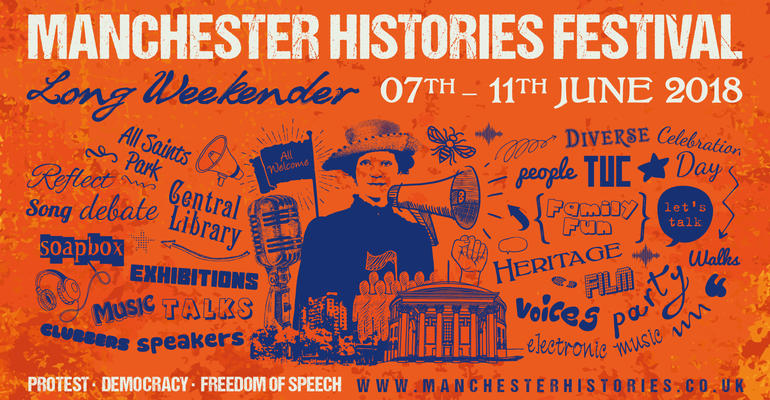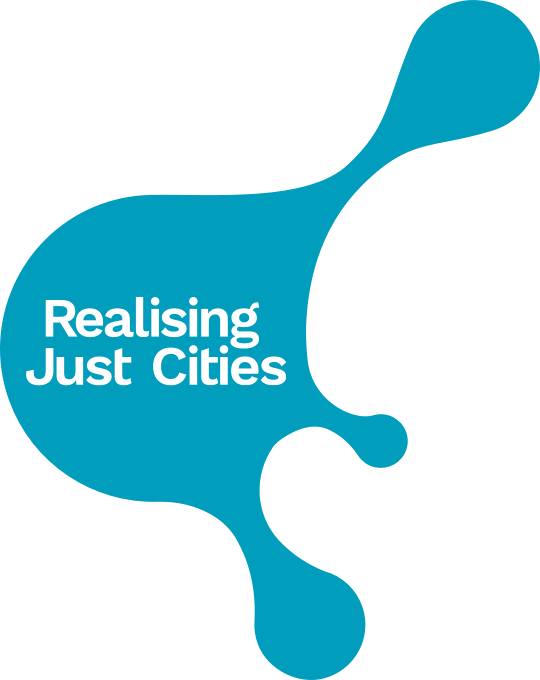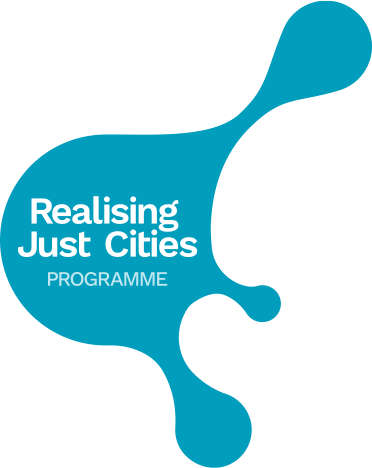"The most common way we give up our power is thinking we don't have any."

Author, Beth Perry, October 2018
As we enter Autumn, work continues apace with the Action Research Collective. Jam and Justice has now launched all the action research projects and we are busy collecting data to support our comparative analysis. It’s great to see the output and video of the work by the People’s Republic of Energy project. At the beginning of September, we had the final meeting of the People’s Procurement project, run by CLES with the Greater Manchester Social Value Network; and last week, our projects Space in Common and Care at Home launched their group work and inquiry respectively.
In the meantime Jam and Justice has been out and about making connections and talking to different organisations in the city-region. We’ve also been taking part in discussions around devolution happening across Greater Manchester.
Back in June, it was the Manchester Histories festival. Manchester Histories is a charity that delivers projects, events and activities with communities that reveal, share and celebrate Greater Manchester's diverse histories and heritage.
The Action Research Collective were invited to participate in Debates Day, a day full of activities aimed at exchanging different ideas and thoughts through discussing topics that have or are shaping our histories and society.
I organised a lunchtime session at Manchester Central Library, entitled ‘Double Down Devolution’.
Has devolution opened up new opportunities for community engagement and empowerment, shifting power from Whitehall to the Townhall?
Devolution is a process of power and responsibility sharing, where some decisions previously made nationally – in Westminister by the national government – are given to cities to take themselves. It’s a process that has been going on for over 20 years – with devolution first from Westminster to Scotland, Northern Ireland and Wales, then, with greater powers being given to London along with a directly elected Mayor in 2000.
Greater Manchester, with a population of around 2.8 people (that’s more than Northern Ireland and not much less than Wales), got its devolution deal in 2014. This was hard won, on the back of the fact that Greater Manchester’s 10 local authorities have a long history of partnership working.
A key part of the Greater Manchester deal was a directly elected Mayor to help the city-region speak with one voice. Andy Burnham was elected as the first GM Mayor just over 1 year ago. Now, more decisions are made by the 10 Local Authorities plus the Mayor through what’s called the Greater Manchester Combined Authority (or GMCA). Greater Manchester has greater control of decisions on transport, housing, planning health and social care crime and policing, for instance.
Some would say this is a better deal than London got originally. But there have been limited new resources from central government. There are a few more financial mechanisms – an increase on council tax to fund Mayoral activities, a percentage of the business rates, ways to earn back income as a reward for good economic performance. But overall there’s little ‘new’ money. Instead, much of the focus is on greater control over how existing pots of funds get spent.
Local authorities are still a critical part of the decision-making structures in GM. For instance, the Greater Manchester spatial plan has to be agreed unanimously between all 10 LAs and the Mayor.
But the Manchester Evening News reported in February this year that our 10 local authorities will have £689m less to spend this year than in 2010/2011. And the Greater Manchester Combined Authority’s power to make decisions for the people living here is still heavily constrained by decisions made nationally, or the private sector. The lack of power for the Mayor to intervene over the summer’s rail fiasco is one example.
The Greater Manchester Combined Authority is making all the right noises about working collaboratively, being transparent and taking decisions together. But all this means there has been a big debate over devolution itself and the nature of the deal with central government. The positive view is that devolution helps us make decisions that are more relevant and tailored to local circumstances. Another view is that it is a way of pushing out responsibilities for delivery without any resources.
One year on from the election of Andy Burnham as Mayor of Greater Manchester, our aim was to discuss these issues:
- How can devolution not stop at the gates of the Combined Authority, but be an opportunity to empower local civil society, local authorities and citizens to shape and make Greater Manchester?
- What inspirations can we take from the past and elsewhere?
- What does the horizon for collective decision-making in Greater Manchester look like?
These are some of the questions we put to our experienced and wise invited speakers: Amanda Bickerton, Bertie Russell, Eve Holt, Jez Hall, Liz Richardson and Sheni Ravji-Smith, chaired by the effervescent Nicola Headlam, from the ESRC Urban Transformations programme.
Amanda, a social entrepreneur and charity trustee, took us back in time and looked at how the history of local politics and participation in Greater Manchester can inform the current debates on devolution, with reference to Peterloo, Kersal Moor and the women’s suffrage movement. Amanda drew attention to the turmoil of transition from the feudal model of local government to what we would recognise as a modern metropolitan borough with an elected council in the 1830s. The emotional pulse of the room was rocketed when Amanda passionately said:
I don’t want to see a sky of cranes, to be pushed out of my home because it sits on prime development land, or to whore the city to line the pockets of rich developers. It’s only a matter of time, if things continue as they are, before we are socially cleansed from our homes because they are close to the city centre. A lot of what has been talked about with devolution is not for us. Amanda Bickerton, June 2018.
Bertie, Jam and Justice researcher at the Urban Institute, University of Sheffield, argued that devolving power to ‘local’ institutions is not sufficient for achieving ‘more’ or ‘better' democracy. Devolved decision-making can go hand-in-hand with reduced democratic control, locking our municipalities into race-to-the-bottom competition, reducing the capacity for citizens to shape the conditions of their own lives. However, drawing on international examples, Bert’s main message was a simple one: a transformative vision of democracy isn’t just a utopian dream - it’s already happening.
It’s not about localising power, but distributing it, so everyday people control the future of our society. Bertie Russell, June 2018.
Eve, a born and bred Mancunian, Manchester councillor and co- lead of HappenTogether, DivaManc and the Bike Hive, focussed on how we enable and ensure a real devolution of power to citizens in Greater Manchester - in deeds not words - 'designing in' inclusion and participation into the fabric of the devolution structures and ways of working to better harness the strength of our diversity and the collective. She highlighted the need to increase gender sensitivity within Greater Manchester's political institutions, mainstream gender in public decision-making and increase women's local power and participation 'putting the diva into devolution'. Learning from elsewhere, she said, was really important, to look at how other countries have successfully increased representation and participation of women and other underrepresented groups. Eve won the first major clap of the day with her conclusion that:
The most common way we give up our power is thinking we don’t have any. Eve Holt, June 2018.
Jez is a serial activist and community development worker, who runs a social enterprise, Shared Future CIC, that connects people to inspiring projects locally, nationally and internationally. He is passionate about participatory democracy, social enterprise and community led design. His perspective on the questions focussed on how our ‘patchy’ sense of place, co-responsibility for our city, and a sense of personal agency are defined by a shared history of regeneration, cultural exchange and migration. His particular take was on the question of ownership: who sets the boundaries and how does our engagement shape our identity as Mancunions - individually, corporately and collectively?
Who owns our collective spaces? Who has the power to shape our collective futures? Devolution offers the opportunity to do something different, to focus on citizens and not structures. Jez Hall, June 2018.
Liz does research on participation in policy. She is a Reader in Politics at the University of Manchester and Co-I of Jam and Justice. Liz argued that previous experiences of devolution and decentralisation have put people off the idea, but for the wrong reasons. The serious risk in the current round of devolution, she said, is that it will be more of the same, but smaller. A key barrier is the limit on people's imaginations locally: we need to rethink different modes of collaborative governance.
Positioning this as a David and Goliath battle between central and local government is not the whole story. Liz Richardson, June 2018.
Sheni works at the Greater Manchester Combined Authority and Greater Manchester Fire and Rescue Service delivering programmes that support the organisational and culture change, better leadership and wellbeing of staff across the organisation. She asked:
How we can have a more transformational approach to public services across Greater Manchester? Sheni Ravji-Smith, June 2018.
We shunned the usual ‘panel-at-the-front-audience-listens’ model and organised our invited speakers into a circle. Spare seats were placed amongst them and participants were invited by the chair, Nicola, to take position and join the discussion in the inner circle. Several people took up this option, creating more dynamism and movement than your usual Q&A format. Manchester Histories provided tweeting and live-streaming, resulting in a further 296 listeners joining the debate.
Participants brought fresh perspectives, moving the discussion on to housing, ownership of local assets, corporate responsibility and the 'disappointment' generated by the Northern Rail fiasco:
‘I thought devolution would mean we could take decisions about our transport system.’ Participant, June 2018.
We had barely got going when our hour was up, making way for Manchester Histories next debate. However, the strong attendance in the room and online was testament to the need to keep public discussion alive about the opportunities of devolution.
As we look to Manchester Histories 2019 festival, centred on the bicentennial of the Peterloo Massacre, we need to create more spaces to reinvigorate public debate on devolution in relation to the enduring themes of protest, freedom and democracy in the city.




